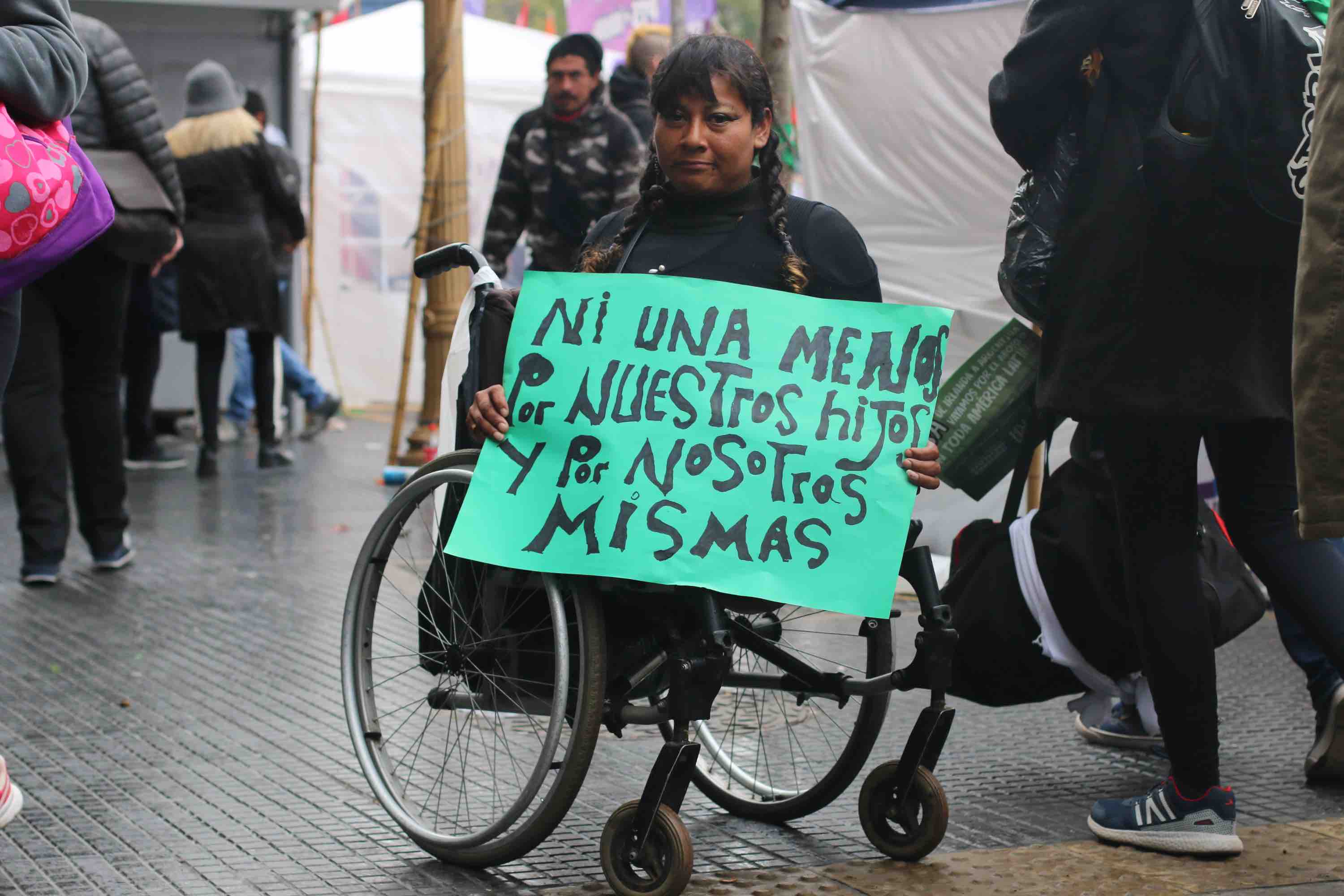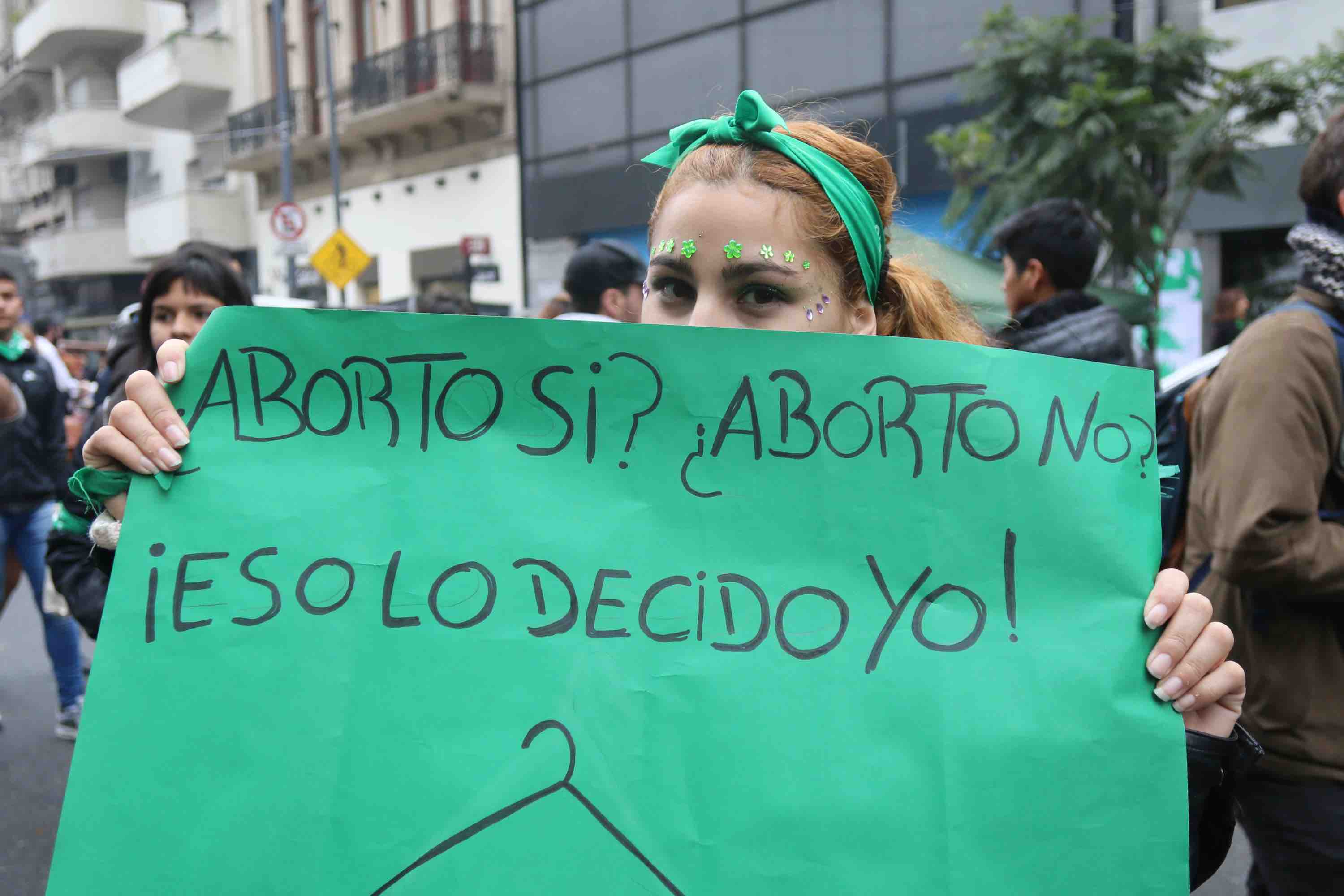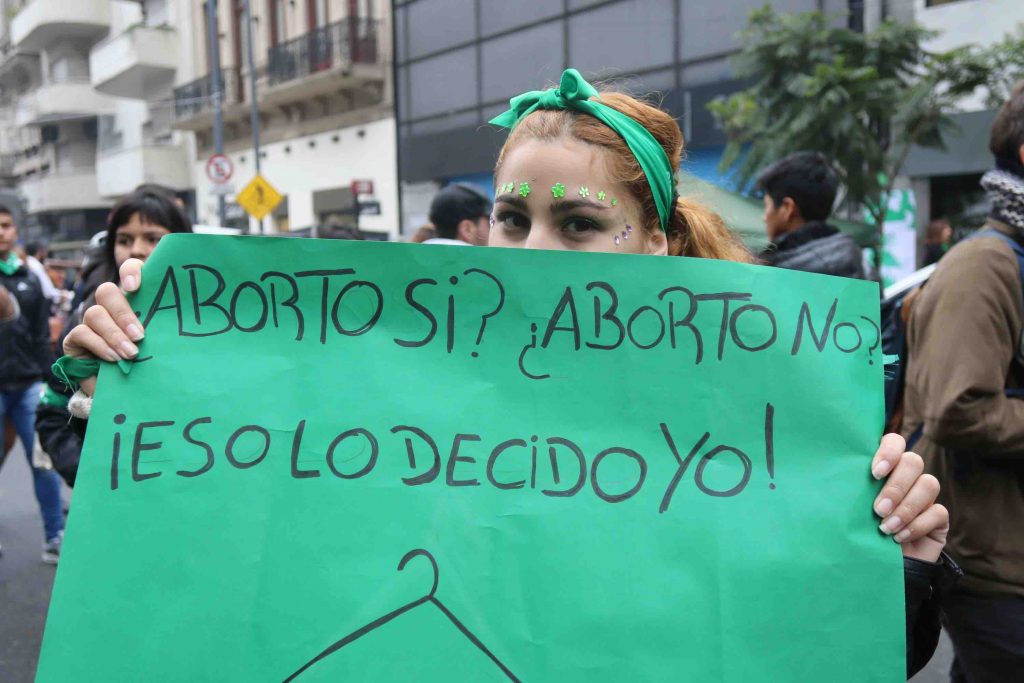As in many parts of the world, abortion is illegal in Argentina unless its a case of rape, a risk to the women’s life, or the mother is mentally disabled. This week, Argentina’s Senate is voting on a bill that will allow abortions up to the 14-week mark. If the bill passes, it’ll be a milestone for Latin America, where the Catholic Church has used its considerable influence to keep the procedure banned. Currently only Cuba, Uruguay, and Mexico City allow elective abortions. But in other parts of Latin America, women are still jailed for years, sometimes decades, after suffering a miscarriage. As women in Argentina hold green signs and call for change (the opposition wears blue), Margaret Atwood, author of The Handmaid’s Tale has lent her support to the cause.

Atwood is using her Twitter account to share the stories of the women fighting for their right to control their bodies. Women have used her book as inspiration for their protest. Weeks ago, they dressed in red cloaks and white bonnets, matching the uniforms the handmaids are forced to wear in Atwood’s dystopian novels.
In response, Atwood penned a scathing op-ed in support of Argentine women. “No one is forcing women to have abortions,” she wrote. “No one either should force them to undergo childbirth. Enforce childbirth if you wish, Argentina, but at least call that enforcing by what it is. It is slavery: the claim to own and control another’s body, and to profit by that claim.”
The bill passed the lower house of Congress. Debates are set to start today, but a vote isn’t expected until Thursday. In the meantime, follow what’s happening in Argentina with the #abortosesiónhistórica hashtag and read Atwood’s full letter below.
Nobody likes abortion, even when safe and legal. It’s not what any woman would choose for a happy time on Saturday night. But nobody likes women bleeding to death on the bathroom floor from illegal abortions, either. What to do?
Perhaps a different way of approaching the question would be to ask, What kind of country do you want to live in? One in which every individual is free to make decisions concerning his or her health and body, or one in which half the population is free and the other half is enslaved?
Women who cannot make their own decisions about whether or not to have babies are enslaved, because the State claims ownership of their bodies and the right to dictate the use to which their bodies must be put. The only similar circumstance for men is conscription into an army. In both cases there is risk to the individual’s life, but an army conscript is at least provided with food, clothing, and lodging. Even criminals in prisons have a right to those things! If the State is mandating enforced childbirth, why should it not pay for prenatal care, for the birth itself, for postnatal care, and – for babies that are not sold off to richer families — for the cost of bringing up the child?
And if the State is very fond of babies, why not honour the women who have the most babies by respecting them and lifting them out of poverty? If women are providing a needed service to the State – albeit against their wills – surely they should be paid for their labour. If the goal is more babies, I am sure many women would oblige if properly recompensed. Otherwise, they are inclined to follow the natural law: placental mammals will abort in the face of resource scarcity.
But I doubt that the State is willing to go so far as to provide the needed resources. Instead it just want to reinforce the usual cheap trick: force women to have babies, and then make them pay. And pay. And pay. As I said, slavery.
If one chooses to have a baby, that is of course a different matter. The baby is a gift, given by life itself. But to be a gift a thing must be freely given and freely received. A gift can also be rejected. A gift that cannot be rejected is not a gift, but a symptom of tyranny.
We say that women “give birth.” And mothers who have chosen to be mothers do give birth, and feel it as a gift. But if they have not chosen, birth is not a gift they give; it is an extortion from them against their wills.
No one is forcing women to have abortions. No one either should force them to undergo childbirth. Enforce childbirth if you wish, Argentina, but at least call that enforcing by what it is. It is slavery: the claim to own and control another’s body, and to profit by that claim.




